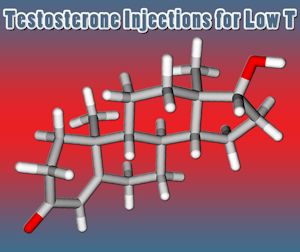Introduction to Breast Cancer in Men
Breast cancer, though less common in men than in women, remains a significant health concern that requires vigilant attention and proactive management. According to the American Cancer Society, approximately 2,710 new cases of invasive breast cancer will be diagnosed in men in the United States in 2023. Given these statistics, exploring innovative healthcare solutions like tamoxifen therapy becomes crucial in managing and potentially preventing this disease in high-risk male populations.
Understanding Tamoxifen
Tamoxifen, a selective estrogen receptor modulator (SERM), has been a cornerstone in the treatment of breast cancer for decades. Traditionally used in postmenopausal women with hormone receptor-positive breast cancer, its application in men, particularly those at high risk, is an emerging area of interest. Tamoxifen works by blocking the effects of estrogen in breast tissue, which can prevent the growth of hormone-sensitive cancer cells.
The Role of Tamoxifen in Men
In men, the use of tamoxifen is primarily focused on those with a genetic predisposition or other high-risk factors for developing breast cancer. Studies have shown that tamoxifen can reduce the incidence of breast cancer in high-risk groups by up to 50%. For men, this represents a significant advancement in preventive care, offering a proactive approach to managing their health risks.
Clinical Evidence and Guidelines
Clinical trials supporting the use of tamoxifen in men are less extensive than those in women, but the available data are promising. A study published in the Journal of Clinical Oncology highlighted that men with BRCA2 mutations, who are at a higher risk for breast cancer, experienced significant benefits from tamoxifen therapy. The National Comprehensive Cancer Network (NCCN) also recommends considering tamoxifen for men at high risk, underscoring its potential role in preventive oncology.
Side Effects and Management
While tamoxifen offers substantial benefits, it is not without side effects. Common issues include hot flashes, mood swings, and an increased risk of blood clots. For men, additional concerns may include sexual dysfunction and decreased libido. It is crucial for healthcare providers to discuss these potential side effects with patients, ensuring they are fully informed and prepared to manage them. Regular monitoring and adjustments to the treatment plan can help mitigate these effects, improving the overall quality of life for patients.
Integrating Tamoxifen into Men's Health Regimens
Incorporating tamoxifen into a man's health regimen requires a tailored approach. Genetic counseling, risk assessment, and ongoing monitoring are essential components of this strategy. Men at high risk should engage in regular discussions with their healthcare providers to assess the appropriateness of tamoxifen therapy and to monitor its effectiveness and side effects.
The Future of Tamoxifen in Men's Health
As research continues to evolve, the role of tamoxifen in men's health is likely to expand. Ongoing studies are exploring its potential in other hormone-sensitive conditions and its long-term effects in male populations. The future may see tamoxifen becoming a standard preventive measure for men at high risk of breast cancer, much as it has become for women.
Conclusion
Tamoxifen therapy represents a significant advancement in the field of men's health, particularly for those at high risk of developing breast cancer. By understanding its benefits and managing its side effects, men can take proactive steps toward preventing this disease. As healthcare continues to innovate, tamoxifen's role in men's preventive care is set to become increasingly important, offering hope and improved outcomes for those at risk.
This article underscores the importance of considering tamoxifen as part of a comprehensive approach to men's health, emphasizing the need for personalized care and ongoing research to enhance its effectiveness and safety.
Contact Us Today For A Free Consultation

- Tamoxifen's Role in Reducing Breast Cancer Recurrence in American Males [Last Updated On: February 22nd, 2025] [Originally Added On: February 22nd, 2025]
- Unveiling the Complexity of Tamoxifen Side Effects: A Professional Medical Review [Last Updated On: March 2nd, 2025] [Originally Added On: March 2nd, 2025]
- Exploring Tamoxifen: Mechanisms, Applications, and Considerations in Hormone Receptor-Positive Breast Cancer Treatment and Beyond [Last Updated On: March 3rd, 2025] [Originally Added On: March 3rd, 2025]
- Unveiling Tamoxifen: A Revolutionary Approach to Combat Breast Cancer in American Men [Last Updated On: March 4th, 2025] [Originally Added On: March 3rd, 2025]
- Exploring Long-Term Tamoxifen Use and Effects in American Males [Last Updated On: March 4th, 2025] [Originally Added On: March 4th, 2025]
- Exploring Tamoxifen's Role in Male Health: Therapy and Side Effects Management [Last Updated On: March 5th, 2025] [Originally Added On: March 5th, 2025]
- Exploring Tamoxifen's Role in Treating Hormone-Sensitive Cancers Among Adolescents [Last Updated On: March 6th, 2025] [Originally Added On: March 6th, 2025]
- Tamoxifen in Male Breast Cancer: Efficacy, Side Effects, and Future Directions [Last Updated On: March 7th, 2025] [Originally Added On: March 7th, 2025]
- Unveiling Tamoxifen Resistance in Male Breast Cancer: Mechanisms, Challenges, and Future Strategies [Last Updated On: March 8th, 2025] [Originally Added On: March 8th, 2025]
- Exploring Tamoxifen's Role Pre and Post-Surgery: Benefits, Safety, and New Applications [Last Updated On: March 9th, 2025] [Originally Added On: March 9th, 2025]
- Unveiling the Molecular Mechanisms of Tamoxifen in Treating Hormonal Cancers Among American Males [Last Updated On: March 11th, 2025] [Originally Added On: March 11th, 2025]
- Optimizing Tamoxifen Dosage for Effective Breast Cancer Treatment in American Males [Last Updated On: March 12th, 2025] [Originally Added On: March 12th, 2025]
- Tamoxifen's Potential in Pediatric Oncology: Hope for American Males [Last Updated On: March 13th, 2025] [Originally Added On: March 13th, 2025]
- Unveiling the Risks: A Comprehensive Look at Long-Term Tamoxifen Use in American Males [Last Updated On: March 15th, 2025] [Originally Added On: March 15th, 2025]
- Tamoxifen: Understanding Its Role in Male Breast Cancer Treatment and Prevention [Last Updated On: March 16th, 2025] [Originally Added On: March 16th, 2025]
- Tamoxifen Side Effects in American Males: Management and Coping Strategies [Last Updated On: March 17th, 2025] [Originally Added On: March 17th, 2025]
- Tamoxifen: Benefits and Side Effects for American Males in Breast Cancer Treatment [Last Updated On: March 18th, 2025] [Originally Added On: March 18th, 2025]
- Tamoxifen's Impact on Men's Health: Benefits, Risks, and Management Strategies [Last Updated On: March 19th, 2025] [Originally Added On: March 19th, 2025]
- Tamoxifen Interactions in American Males: Optimizing Breast Cancer Treatment [Last Updated On: March 19th, 2025] [Originally Added On: March 19th, 2025]
- Tamoxifen's Role in Reducing Breast Cancer Mortality in American Men [Last Updated On: March 19th, 2025] [Originally Added On: March 19th, 2025]
- Tamoxifen's Expanding Role in Men's Health: Breast Cancer, Prostate, and Infertility [Last Updated On: March 20th, 2025] [Originally Added On: March 20th, 2025]
- Tamoxifen's Role in Inhibiting Cancer Growth: Implications for American Males [Last Updated On: March 20th, 2025] [Originally Added On: March 20th, 2025]
- Tamoxifen in American Males: Benefits and Challenges in Recurrent Cancer Treatment [Last Updated On: March 21st, 2025] [Originally Added On: March 21st, 2025]
- Tamoxifen's Journey: From Contraceptive to Male Breast Cancer Treatment [Last Updated On: March 21st, 2025] [Originally Added On: March 21st, 2025]
- Tamoxifen's Role in Hormone Therapy for American Males: Benefits and Considerations [Last Updated On: March 21st, 2025] [Originally Added On: March 21st, 2025]
- Tamoxifen's Role in Treating and Preventing Male Breast Cancer: Insights and Advances [Last Updated On: March 22nd, 2025] [Originally Added On: March 22nd, 2025]
- Tamoxifen's Efficacy in Treating Male Breast Cancer: Clinical Insights and Future Directions [Last Updated On: March 22nd, 2025] [Originally Added On: March 22nd, 2025]
- Tamoxifen in American Males: Benefits, Risks, and Considerations for Breast Cancer Treatment [Last Updated On: March 22nd, 2025] [Originally Added On: March 22nd, 2025]
- Tamoxifen's Impact on Bone Health in American Males: Strategies for Prevention and Management [Last Updated On: March 23rd, 2025] [Originally Added On: March 23rd, 2025]
- Tamoxifen's Potential in Treating Rare Cancers: Insights and Implications for American Males [Last Updated On: March 23rd, 2025] [Originally Added On: March 23rd, 2025]
- Tamoxifen Drug Interactions in American Males: Clinical Management and Optimization [Last Updated On: March 23rd, 2025] [Originally Added On: March 23rd, 2025]
- Tamoxifen's Potential in Leukemia Treatment for American Males: Mechanisms and Clinical Insights [Last Updated On: March 23rd, 2025] [Originally Added On: March 23rd, 2025]
- Tamoxifen's Emerging Role in Treating Endocrine Cancers in American Males [Last Updated On: March 23rd, 2025] [Originally Added On: March 23rd, 2025]
- Tamoxifen's Role in Treating Male Breast Cancer: Benefits and Management [Last Updated On: March 24th, 2025] [Originally Added On: March 24th, 2025]
- Tamoxifen: Hope and Strategy for American Men with Breast Cancer [Last Updated On: March 24th, 2025] [Originally Added On: March 24th, 2025]
- Tamoxifen: A Vital Tool in Managing Men's Health Challenges [Last Updated On: March 24th, 2025] [Originally Added On: March 24th, 2025]
- Tamoxifen's Role in Treating and Preventing Male Breast Cancer: A Comprehensive Guide [Last Updated On: March 24th, 2025] [Originally Added On: March 24th, 2025]
- Tamoxifen: A Key Treatment for Breast Cancer in American Males [Last Updated On: March 25th, 2025] [Originally Added On: March 25th, 2025]
- Tamoxifen's Role in Treating Hormone-Sensitive Cancers in American Males [Last Updated On: March 25th, 2025] [Originally Added On: March 25th, 2025]
- Exploring Tamoxifen Alternatives for Male Breast Cancer Treatment in American Males [Last Updated On: March 25th, 2025] [Originally Added On: March 25th, 2025]
- Tamoxifen's Dual Impact on Ovarian Function: Fertility and Menopause Considerations [Last Updated On: March 25th, 2025] [Originally Added On: March 25th, 2025]
- Tamoxifen's Role in Treating Gynecomastia: Efficacy and Considerations for American Males [Last Updated On: March 25th, 2025] [Originally Added On: March 25th, 2025]
- Tamoxifen's Role in Male Breast Cancer: Efficacy, Myths, and Adherence in the US [Last Updated On: March 25th, 2025] [Originally Added On: March 25th, 2025]
- Tamoxifen: From Fertility Drug to Cancer Treatment in American Males [Last Updated On: March 26th, 2025] [Originally Added On: March 26th, 2025]
- Tamoxifen in Male Cancer Care: Benefits, Risks, and Future Directions [Last Updated On: March 26th, 2025] [Originally Added On: March 26th, 2025]
- Personalized Tamoxifen Therapy Enhances Breast Cancer Treatment for American Men [Last Updated On: March 26th, 2025] [Originally Added On: March 26th, 2025]
- Tamoxifen: Essential Facts and Benefits for American Males with Breast Cancer [Last Updated On: March 26th, 2025] [Originally Added On: March 26th, 2025]
- Tamoxifen: Revolutionizing Hormone Therapy for Male Breast Cancer in America [Last Updated On: March 26th, 2025] [Originally Added On: March 26th, 2025]
- Tamoxifen in American Men: Benefits, Risks, and Long-Term Health Implications [Last Updated On: March 26th, 2025] [Originally Added On: March 26th, 2025]
- Tamoxifen's Role in Treating Male Breast Cancer: Molecular Insights for American Men [Last Updated On: March 26th, 2025] [Originally Added On: March 26th, 2025]
- Tamoxifen Therapy for Advanced Hormone-Sensitive Cancers in American Males: Benefits and Risks [Last Updated On: March 26th, 2025] [Originally Added On: March 26th, 2025]
- Strategies to Overcome Tamoxifen Resistance in American Males with Breast Cancer [Last Updated On: March 27th, 2025] [Originally Added On: March 27th, 2025]
- Tamoxifen: A Key Treatment for Advanced Breast Cancer in American Men [Last Updated On: March 27th, 2025] [Originally Added On: March 27th, 2025]
- Tamoxifen Use and Cataract Risk in American Males: A Comprehensive Analysis [Last Updated On: March 27th, 2025] [Originally Added On: March 27th, 2025]
- Tamoxifen's Molecular Dynamics and Therapeutic Benefits for American Males [Last Updated On: March 27th, 2025] [Originally Added On: March 27th, 2025]
- Tamoxifen's Role in Transforming Male Breast Cancer Treatment in America [Last Updated On: March 27th, 2025] [Originally Added On: March 27th, 2025]
- Tamoxifen's Role in Managing Estrogen Fluctuations in American Males: Benefits and Considerations [Last Updated On: March 27th, 2025] [Originally Added On: March 27th, 2025]
- Tamoxifen Use and Depression in American Men: A Critical Oncology Concern [Last Updated On: March 28th, 2025] [Originally Added On: March 28th, 2025]
- Tamoxifen: Gold Standard in Male Breast Cancer Treatment and Its Long-Term Benefits [Last Updated On: March 28th, 2025] [Originally Added On: March 28th, 2025]
- Tamoxifen in Early-Stage Breast Cancer Treatment for American Males: Overview and Management [Last Updated On: March 28th, 2025] [Originally Added On: March 28th, 2025]
- Genomic Predictors of Tamoxifen Response in American Males with Breast Cancer [Last Updated On: March 28th, 2025] [Originally Added On: March 28th, 2025]
- Tamoxifen's Role in Treating Male Breast Cancer: Efficacy and Considerations for American Men [Last Updated On: March 29th, 2025] [Originally Added On: March 29th, 2025]
- Tamoxifen's Potential in Treating Advanced Hormonal Cancers in American Males [Last Updated On: March 29th, 2025] [Originally Added On: March 29th, 2025]
- Tamoxifen Toxicity in American Males: Mechanisms, Risks, and Management Strategies [Last Updated On: March 31st, 2025] [Originally Added On: March 31st, 2025]
- Tamoxifen's Endocrine Effects on American Male Breast Cancer Patients: Insights and Management [Last Updated On: April 1st, 2025] [Originally Added On: April 1st, 2025]
- Tamoxifen: A New Hope for Male Fertility in American Men [Last Updated On: April 1st, 2025] [Originally Added On: April 1st, 2025]
- Tamoxifen Therapy in American Males: Molecular Determinants and Personalized Treatment Strategies [Last Updated On: April 1st, 2025] [Originally Added On: April 1st, 2025]
- Tamoxifen: A Vital Tool in Treating and Preventing Male Breast Cancer [Last Updated On: April 3rd, 2025] [Originally Added On: April 3rd, 2025]
- Enhancing Tamoxifen Efficacy in American Males with Breast Cancer Using Adjunct Therapies [Last Updated On: April 5th, 2025] [Originally Added On: April 5th, 2025]
- Tamoxifen: A Vital Tool in Preventing Breast Cancer in American Men [Last Updated On: April 6th, 2025] [Originally Added On: April 6th, 2025]
- Tamoxifen's Cardiovascular Impact on American Males: Benefits, Risks, and Management [Last Updated On: April 8th, 2025] [Originally Added On: April 8th, 2025]
- Tamoxifen Therapy: A Key Treatment for Male Breast Cancer in the US [Last Updated On: April 9th, 2025] [Originally Added On: April 9th, 2025]
- Tamoxifen in American Males: Breast Cancer Benefits vs. Endometrial Cancer Risks [Last Updated On: April 9th, 2025] [Originally Added On: April 9th, 2025]
- Tamoxifen's Role in Treating Breast Cancer in American Males: Mechanisms and Impacts [Last Updated On: April 9th, 2025] [Originally Added On: April 9th, 2025]
- Tamoxifen: A Vital Treatment for Breast Cancer in American Men [Last Updated On: April 9th, 2025] [Originally Added On: April 9th, 2025]
- Tamoxifen's Efficacy in Treating Advanced Breast Cancer in American Males: Case Studies [Last Updated On: April 10th, 2025] [Originally Added On: April 10th, 2025]
- Tamoxifen's Role in Chemoprevention for American Males: Breast Cancer Risk Reduction [Last Updated On: April 10th, 2025] [Originally Added On: April 10th, 2025]
- Tamoxifen in Men: Breast Cancer Treatment, Side Effects, and Holistic Health Management [Last Updated On: April 13th, 2025] [Originally Added On: April 13th, 2025]
- Tamoxifen's Role in Preventing Cancer in American Men: A Comprehensive Overview [Last Updated On: April 13th, 2025] [Originally Added On: April 13th, 2025]
- Tamoxifen's Expanding Role in Men's Health: Beyond Breast Cancer Treatment [Last Updated On: April 14th, 2025] [Originally Added On: April 14th, 2025]
Word Count: 591





















